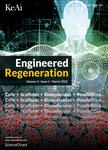Dual ultra-wideband(UWB)radar-based sleep posture recognition system:Towards ubiquitous sleep monitoring
作者机构:Department of Biomedical EngineeringFaculty of EngineeringThe Hong Kong Polytechnic UniversityHong Kong 999077China Department of BioengineeringImperial CollegeLondon SW72AZUnited Kingdom Research Institute of Smart AgeingThe Hong Kong Polytechnic UniversityHong KongChina School of NursingThe Hong Kong Polytechnic UniversityHong KongChina
出 版 物:《再生工程(英文)》 (Engineered Regeneration)
年 卷 期:2023年第4卷第1期
页 面:36-43页
核心收录:
学科分类:1002[医学-临床医学] 100213[医学-耳鼻咽喉科学] 10[医学]
基 金:supported by General Research Fund from the Research Grants Council of Hong Kong,China (Project No.PolyU15223822) Internal fund from the Research Institute for Smart Ageing (Project No.P0039001) Department of Biomedical Engineering (Project No.P0033913 and P0035896)from the Hong Kong Polytechnic University
主 题:Obstructive sleep apnea Deep learning Sleep monitoring Feature extraction Ablation study
摘 要:Sleep posture monitoring is an essential assessment for obstructive sleep apnea(OSA)*** objective of this study is to develop a machine learning-based sleep posture recognition system using a dual ultra-wideband radar *** collected radiofrequency data from two radars positioned over and at the side of the bed for 16 patients performing four sleep postures(supine,left and right lateral,and prone).We proposed and evaluated deep learning approaches that streamlined feature extraction and classification,and the traditional machine learning approaches that involved different combinations of feature extractors and *** results showed that the dual radar system performed better than either single *** statistical features with random forest classifier yielded the best accuracy(0.887),which could be further improved via an ablation study(0.938).Deep learning approach using transformer yielded accuracy of 0.713.



